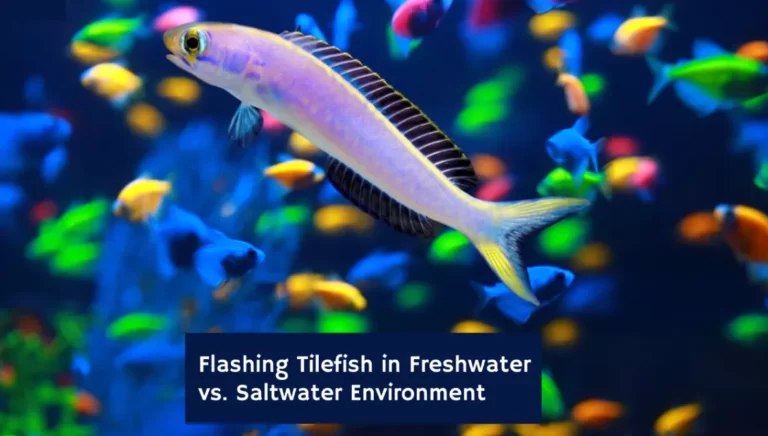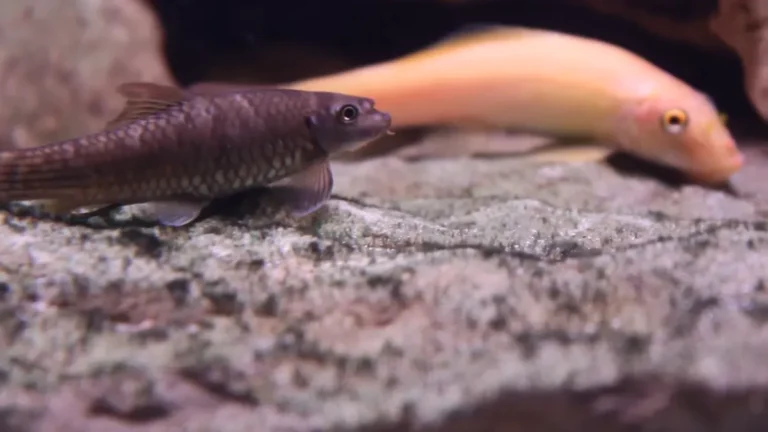Betta Fish Staying at Top of Tank After Water Change: What to Do?
Hey there, fish lovers! It’s time to dive into the fascinating world of betta fish care. Today, we’ll tackle a common concern that many betta fish owners face: their beloved finned friends staying at the top of the tank after a water change. It can be quite worrisome to see your betta fish exhibiting this behavior, but fear not!
We’ll explore the possible reasons behind it and provide you with valuable insights and solutions to ensure the well-being of your aquatic buddy.

Betta Fish Staying at Top of Tank After Water Change
So, why exactly does your betta fish hang out near the water’s surface following a water change? Let’s dive in and uncover the answers:
- Water Parameters and Chemistry: Changes in water parameters, such as temperature and pH, can significantly impact betta fish behavior. Fluctuations in these parameters can cause stress and discomfort, leading them to seek refuge near the water’s surface.
- Impact of Water Quality: Poor water quality can also contribute to this behavior. Maintaining proper filtration and regularly testing the water for ammonia, nitrite, and nitrate levels is crucial. High ammonia or nitrite levels can be toxic to betta fish and may lead them to stay closer to the surface for oxygen.
- Stress from Water Changes: The process of water changing itself can be stressful for bettas. Sudden changes in water chemistry and temperature can be jarring, causing them to exhibit unusual behavior. Stress is a significant factor to consider when addressing this issue.
Related Post: Is 82 Too Hot for Betta? Understanding the Ideal Temperature for Betta Fish
Factors Affecting Betta Fish Behavior
To better understand why your betta fish may be hanging out at the top of the tank, let’s explore some additional factors that can influence their behavior:
- Water Quality: Betta fish thrive in clean and well-maintained water conditions. Ensuring proper filtration, regular water testing, and maintaining appropriate ammonia, nitrite, and nitrate levels is crucial for their overall health and behavior.
- Temperature Fluctuations: Betta fish are sensitive to temperature changes. Drastic fluctuations can cause stress and discomfort, prompting them to seek areas with better oxygen exchange, such as the water surface.
- Tank Size and Environment: The size of the tank, as well as the presence of hiding spots and decorations, can impact betta fish behavior. Providing ample space and creating a suitable environment with appropriate hiding spots and resting places can promote more natural behavior.
Acclimating Betta Fish to Water Changes
Now that we understand some of the factors contributing to betta fish behavior after a water change, let’s explore how to properly acclimate them to minimize stress:
Gradual Method:
Instead of performing abrupt water changes, try the gradual method. Start by adding small amounts of new water to the tank over time, allowing the betta fish to adjust slowly.
Matching Water Parameters:
Ensure that the temperature of the new water matches the existing tank water. Using a reliable thermometer, aim for a close match to avoid temperature shocks.
Water Conditioning:
Treat tap water with a suitable water conditioner to remove harmful chlorine and chloramine. This step is crucial to provide a safe and comfortable environment for your betta fish.
Common Mistakes and Tips for Water Changes
To prevent betta fish from staying at the top of the tank after a water change, let’s address some common mistakes and provide valuable tips for successful water changes:
- Avoid Unconditioned Tap Water: Never add untreated tap water directly to the tank. Always use a water conditioner to remove harmful chemicals, such as chlorine, which can be detrimental to your betta fish.
- Avoid Abrupt Changes: Sudden water changes can cause stress and shock for your betta fish. Aim for gradual changes and maintain consistency to minimize stress levels.
- Use a Siphon for Debris Removal: Utilize a siphon during water changes to remove debris, uneaten food, and waste from the gravel or substrate. This helps maintain good water quality and reduces the risk of ammonia buildup.
Related Post: Betta Staying at Top of Tank and Not Eating
Frequently Asked Questions (FAQ)
Now, let’s address some common questions and concerns regarding betta fish behavior after water changes:
Can betta fish die from stress after a water change?
While stress can be detrimental to betta fish, they are generally resilient. However, prolonged or severe stress can weaken their immune system and make them more susceptible to diseases.
How long does it take for bettas to adjust after a water change?
Betta fish typically adjust within a few hours to a day after a water change. Providing a comfortable and stable environment with consistent water parameters can expedite the adjustment process.
Is it normal for betta fish to gasp for air at the water’s surface?
Betta fish have a labyrinth organ that allows them to breathe air directly from the surface. It is normal for them to take occasional trips to the surface to breathe. However, constant gasping may indicate poor water quality or oxygenation.
Conclusion
In conclusion, seeing your betta fish staying at the top of the tank after a water change can be alarming, but it’s essential to understand the underlying reasons and take appropriate measures to ensure their well-being. Maintaining optimal water quality, acclimating them properly, and providing a suitable environment are key factors in promoting healthy betta fish behavior. By implementing the tips and guidelines mentioned in this article, you’ll be on your way to creating a stress-free and comfortable habitat for your finned friend.
Related Posts:






